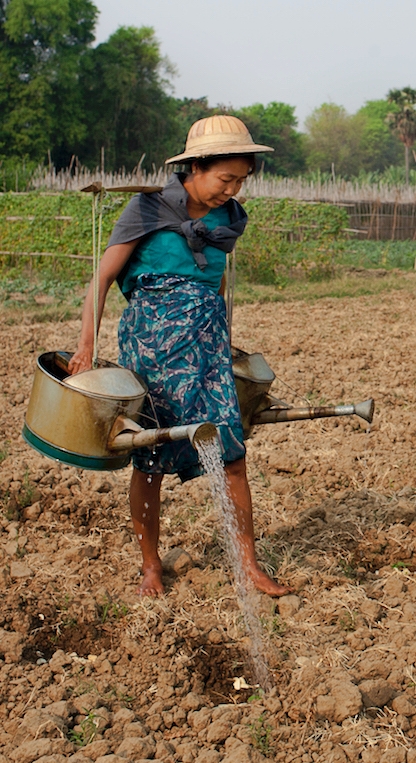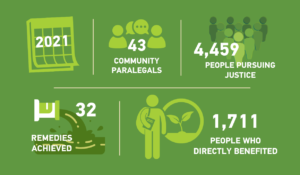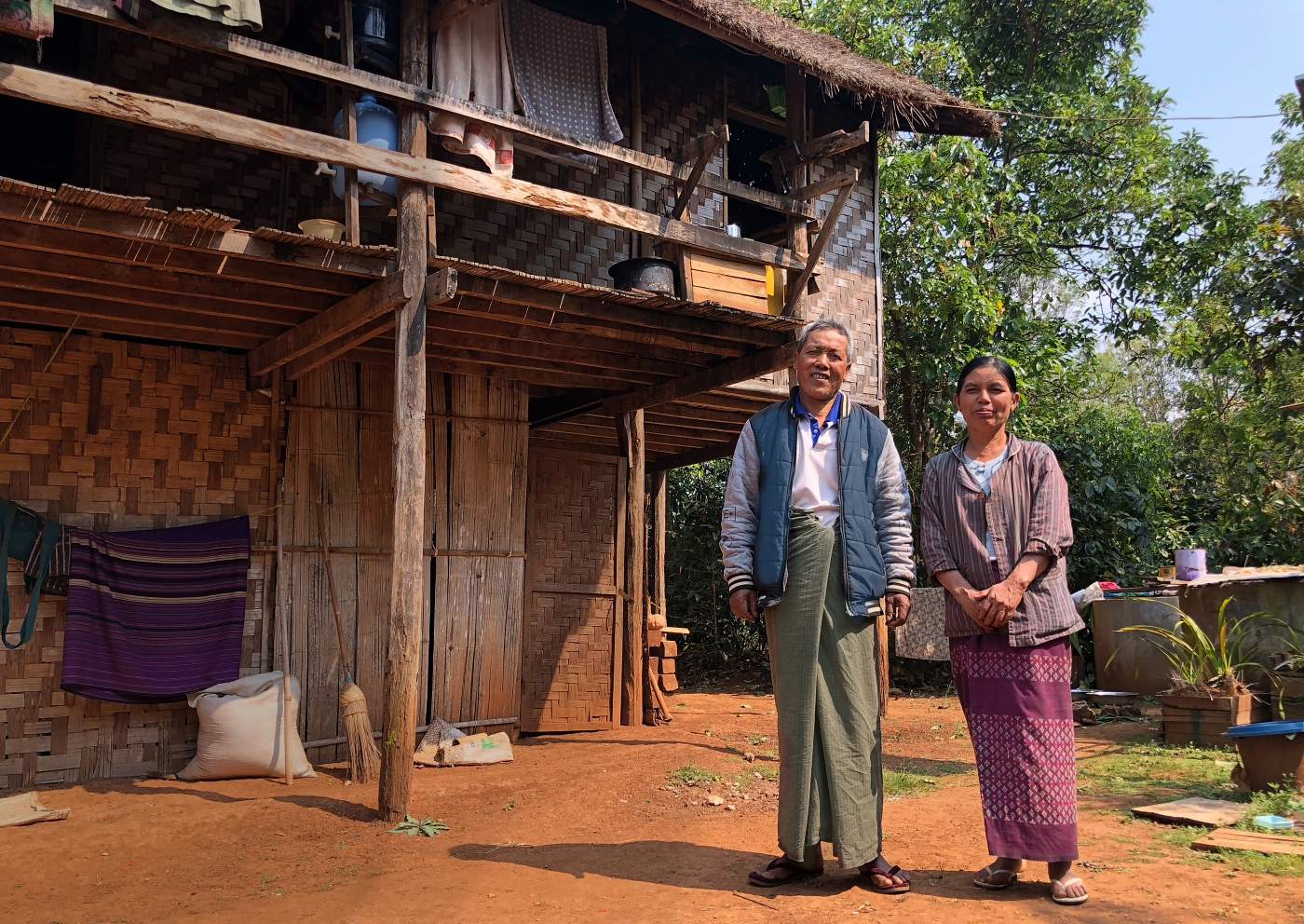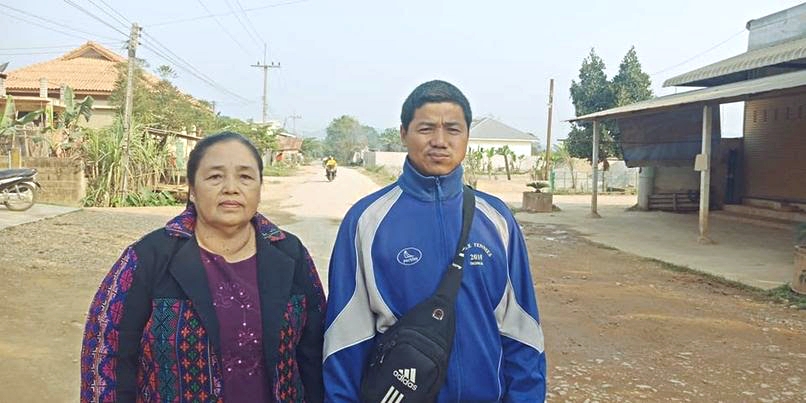Since 2013, Namati and partners have deployed community paralegals who support farmers to understand and use the law to protect their legitimate land rights. This work has included efforts to recover land seized during the last era of military rule and to better protect the land and forests they currently use. In 2019, we expanded our work to assist communities harmed by public and private projects that do not comply with environmental regulations. We did not deviate from our mission after the coup, but we did have to alter our methods and shift where we concentrated our efforts.
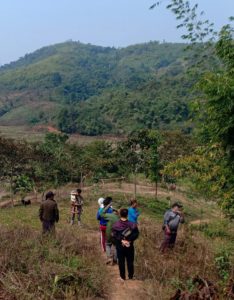
Community members pursuing a remedy inspect the land in question.
First and foremost, the safety and wellbeing of our team and the people with whom we work became an urgent concern. We organized virtual trainings and collectively developed guidance for staff, partners, and paralegals on how to operate safely under the junta’s regime. We also discussed the implications of military rule with the people and communities we were supporting. Several decided they did not want to move forward with their cases, due to the challenges and risks. Some feared, for example, that any effort to assert their rights might be met with reprisals.
For those that wanted to continue their pursuit of a remedy, we had to get creative. The military council put restrictions on movement and effectively revoked the legal recognition of legal aid service providers. Paralegals were no longer able to move freely among their communities or officially accompany people to government offices.
As a result, we had to put a heavier focus on empowering people to pursue remedies on their own. This was not so much a change of strategy as it was a speeding up of our strategy. Our aim has always been to equip ordinary citizens to pursue remedies independently, but the approach was gradual: paralegals would walk alongside community members until they had the tools and knowledge to drive the resolution process on their own. In this new environment, we no longer have that luxury. We adapted by producing guidebooks and other informational material on relevant land laws and administrative processes in local languages, and by organizing small-group legal awareness sessions across four regions.
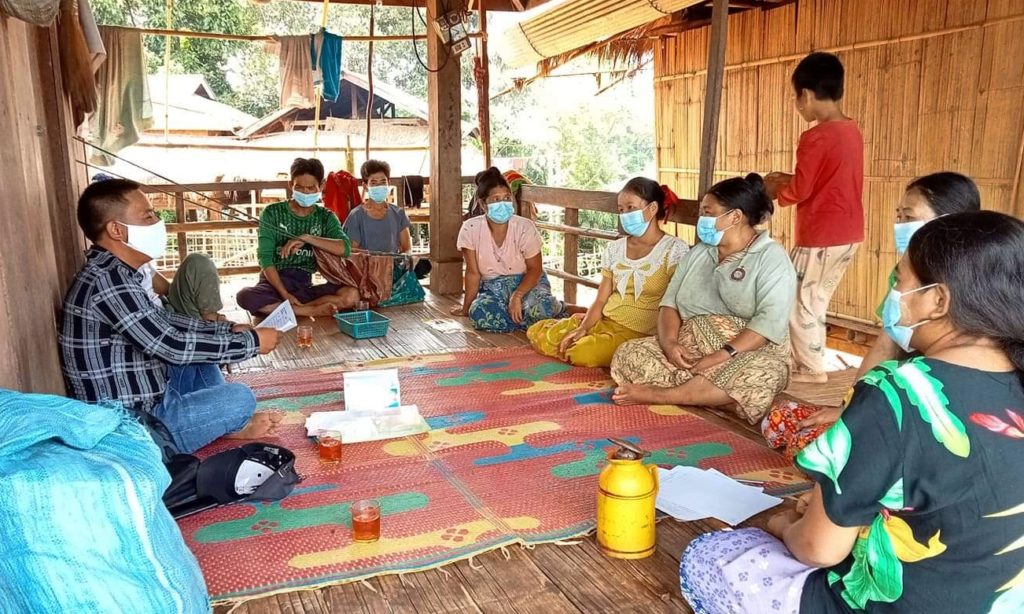
Residents of Sar Lo village in Mong Phyak Township gather to learn about land and environmental laws and mechanisms for redress
The tumultuous political landscape and abrupt changes to laws and systems — along with the far-reaching impacts of the COVID-19 pandemic — presented us with many challenges in 2021. In spite of it all, communities supported by paralegals were able to resolve 32 land and environmental issues, such as the fishing village that secured 300 acres of mangroves that they maintain and rely on from the interests of a powerful organization. Over 1,700 people directly benefited from these 32 remedies (see graphic below). Nearly 2,000 others bolstered their understanding of land and environment laws and processes through paralegal-led education sessions.
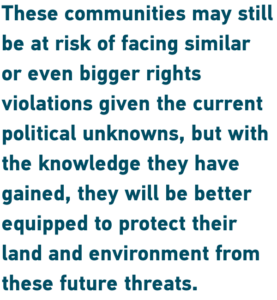
These communities may still be at risk of facing similar or even bigger rights violations given the current political unknowns, but with the knowledge they have gained, they will be better equipped to protect their land and environment from these future threats.
2022 is set to be another turbulent year in Myanmar. The legal and administrative systems will continue to change and the security situation will remain unstable and unpredictable. In order to remain constant in the pursuit of our goals, we plan to intensify our efforts to equip and support individuals and communities to take on land and environmental justice issues on their own at the point of contact with the government. We will carry out more educational sessions, produce more informational material, and develop a mobile application on land laws.
We are also committed to identifying alternative avenues for communities to protect their land and environmental rights in this rapidly changing political climate. To this end, we will be monitoring, documenting, and analyzing the changes to Myanmar’s laws and systems. This will ensure our paralegals and those we support are making informed decisions about whether and how they pursue remedies to injustice.
